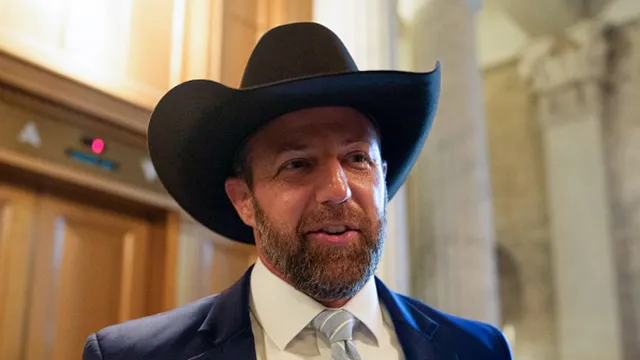
Markwayne Mullin calls Democrats disingenuous about the big bill
2025-07-03 00:00- Senator Markwayne Mullin argues that failing to pass the Big Beautiful Bill may lead to miscalculations of tax revenues.
- Congressman Tony Gonzales expresses optimism that the bill will pass before the Fourth of July amidst ongoing negotiations.
- The debate around the bill highlights significant political disagreements over economic policy and national security.
Express your sentiment!
Insights
In recent discussions surrounding the 'Big, Beautiful Bill', two Republican lawmakers expressed contrasting views on its fiscal implications. Oklahoma Republican Senator Markwayne Mullin appeared on 'Fox Across America', where he challenged critiques from Democrats and some GOP members regarding the bill's projected $3.3 trillion deficit. Mullin emphasized the existing tax policies enacted during President Trump's administration in 2018 and asserted that failing to pass the bill would lead to a miscalculation of future revenues. He contended that if the bill were not passed, it would lead to a scenario where taxes would revert to higher rates, creating a theoretical $4 trillion surplus that he deemed a misleading projection pushed by Democrats. Instead, by making current tax policies permanent, Mullin stated that the country could see a shift from a projected deficit to a $507 billion surplus, citing previous tax cuts as evidence for his optimism about economic growth and increased tax revenue. Furthermore, Congressman Tony Gonzales from Texas shared insights on the current status of the bill during an interview on 'The Guy Benson Show'. He expressed optimism that the bill's passage could occur before the Fourth of July. Gonzales highlighted negotiations within Congress and criticized Democrats for their inaction on other pressing issues, including a resolution to condemn recent violent protests in Los Angeles. He also raised concerns about the implications of President Biden's border policies, emphasizing national security risks posed by potential Iranian sleeper cells and cyber threats. Gonzales’s commentary underscored a broader political atmosphere filled with disagreements over fiscal policy and national security, amplifying the stakes surrounding the upcoming legislative decisions regarding the 'Big, Beautiful Bill'. The discussions by both legislators reflect a critical juncture in American politics, where fiscal responsibility and party lines are under intense scrutiny. The debate on the bill is not merely about economic numbers; it encompasses fundamental disagreements over governance, taxation, and the trajectory of federal spending in today's socio-political climate. With the deadline for negotiations approaching, lawmakers are grappling with the implications of their fiscal policies and the economic ramifications they might have on the American public. As the deadline looms, the political maneuvering will continue, revealing the lengths to which political factions will go to advocate for their ideologies in the face of mounting pressures from both their constituents and the opposing party.
Contexts
The Big Beautiful Bill is a legislative proposal aimed at addressing significant social, economic, and environmental issues. This comprehensive bill encompasses various provisions designed to create a sustainable future while promoting equality and enhancing the quality of life for all citizens. It represents an ambitious effort to tackle systemic challenges faced by society, including the effects of climate change, income disparity, and access to essential services such as healthcare and education. The bill has generated considerable discussion among lawmakers, advocacy groups, and the public, highlighting its potential impact on future policy and governance. Key components of the Big Beautiful Bill include bold initiatives to transition towards renewable energy sources, initiate infrastructure improvements, and invest in public transportation systems. By modernizing infrastructure, the bill aims to stimulate economic growth and job creation while also reducing the carbon footprint associated with traditional energy sources. Furthermore, it seeks to address the urgent need for affordable housing, ensuring that all individuals have access to safe and stable living conditions. The emphasis on these areas underscores a recognition of the interdependence between environmental health and economic sustainability. In addition to environmental and economic measures, the Big Beautiful Bill places a strong focus on social equity. This includes provisions for universal healthcare, free access to quality education, and support for marginalized communities. By addressing disparities in access to essential services, the bill aims to foster a more inclusive society where every individual can thrive. The importance of mental health and well-being is also acknowledged, featuring initiatives to improve mental health resources and support systems throughout the country. Overall, the Big Beautiful Bill represents a transformative vision for the future, one that prioritizes the well-being of people and the planet. As lawmakers continue to deliberate and refine this proposal, the outcomes of these discussions will be closely monitored by various stakeholders. The potential passage of the bill could mark a significant milestone in the pursuit of a fairer, more sustainable world, addressing pressing issues that have far-reaching implications for generations to come.